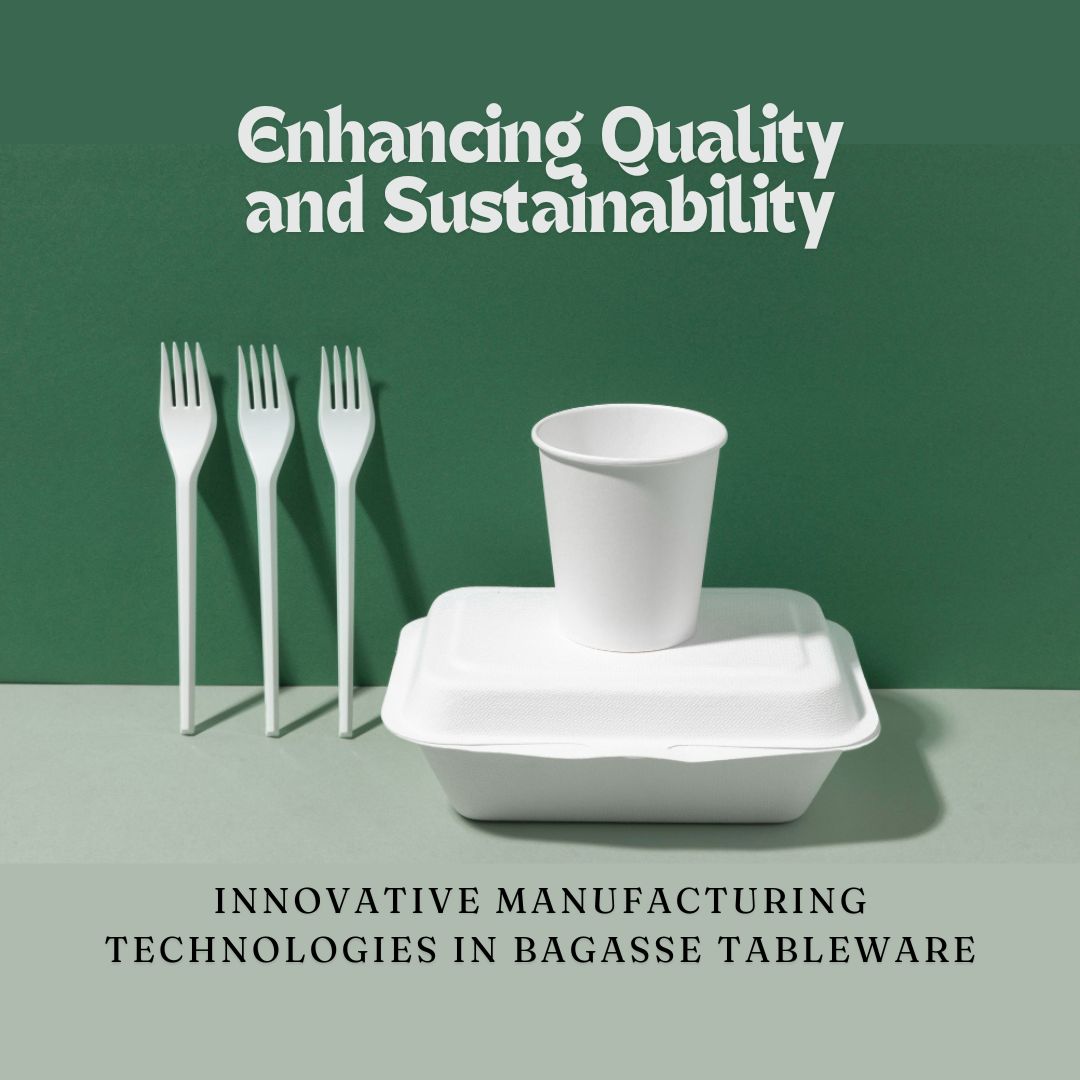The food service industry is undergoing a remarkable transformation as it embraces sustainable solutions to meet the growing demand for eco-friendly products. A standout innovation in this space is Bagasse Tableware—a pioneering approach that converts agricultural waste into high-quality, biodegradable tableware. What sets bagasse apart is not just its eco-friendliness but also the cutting-edge manufacturing technologies that enhance its quality and sustainability. In this blog, we explore these advancements and how they are reshaping the landscape of disposable tableware.
Understanding Bagasse and Its Potential
Bagasse is the fibrous residue left after the extraction of juice from sugarcane. Traditionally considered waste, bagasse is now recognized for its potential as a renewable resource for making durable and biodegradable tableware. Its transformation into tableware involves several innovative technologies that ensure high-quality products capable of meeting the rigorous demands of the food service industry.
The Technological Edge: Advancements in Bagasse Tableware Manufacturing
1. Advanced Pulping Techniques
The journey from raw bagasse to tableware begins with pulping. Modern advancements have significantly improved this stage:
· High-Efficiency Pulping: Advanced pulping machines now use less water and energy while maximizing fiber extraction, resulting in a more sustainable process.
· Chemical-Free Processing: Innovations have led to the development of chemical-free pulping methods, ensuring the safety and purity of the final product.
These improvements not only enhance the environmental profile of bagasse tableware but also contribute to better texture and structural integrity.
2. Precision Molding Technology
Molding is crucial in shaping bagasse pulp into usable tableware items. Recent innovations have focused on precision and efficiency:
· 3D Molding: Utilizing 3D technology allows for more precise and intricate designs, catering to diverse needs such as bowls, plates, and trays.
· Automated Molding Systems: Automation has streamlined the molding process, reducing waste and ensuring consistent product quality. Automated systems can adjust mold shapes and sizes on-the-fly to meet specific requirements without extensive downtime.
3. Enhanced Pressing and Drying Techniques
The pressing and drying stages are vital for imparting strength and durability to bagasse tableware:
· High-Pressure Pressing: Modern pressing techniques apply higher pressure, resulting in denser and more robust products that can handle hot and cold foods without losing their shape.
· Rapid Drying Technology: Advanced drying systems use infrared or microwave technologies to accelerate the drying process, improving energy efficiency and reducing production time.
4. Eco-Friendly Coatings
To enhance the usability of bagasse tableware, particularly for liquids and oily foods, the application of coatings has seen significant advancements:
· Natural Coatings: Development of natural, food-safe coatings derived from plant-based materials that enhance the resistance of bagasse products to moisture and grease without compromising compostability.
· Nanotechnology Applications: Emerging nanotechnology allows for the creation of ultra-thin coatings that improve product performance while maintaining biodegradability.
5. Sustainable Production Systems
The production of bagasse tableware has evolved to minimize environmental impact through:
· Closed-Loop Water Systems: Recycling water within the manufacturing process reduces water usage and minimizes wastewater discharge.
· Energy-Efficient Production Lines: Integration of renewable energy sources such as solar or wind power into the manufacturing process reduces the overall carbon footprint.
Benefits of Advanced Manufacturing in Bagasse Tableware
These technological advancements bring several key benefits that make bagasse tableware a compelling choice for the food service industry:
· Superior Quality: Enhanced pulping, molding, and drying techniques result in stronger, more reliable products that perform well in a variety of food service scenarios.
· Increased Efficiency: Automation and modern production systems streamline manufacturing, leading to faster turnaround times and lower costs.
· Environmental Sustainability: Innovations in energy use, water recycling, and chemical-free processing ensure that bagasse tableware remains a truly eco-friendly option.
· Versatility: Advanced molding and coating technologies allow for a wide range of designs and applications, catering to both functional needs and aesthetic preferences.
Real-World Applications and Impact
The real-world impact of these advancements is evident in various sectors of the food service industry:
· Cafes and Restaurants: Businesses are increasingly adopting bagasse tableware for its high-quality, eco-friendly nature, enhancing their sustainability credentials.
· Catering and Events: The durability and versatility of bagasse products make them ideal for catering large events, where traditional disposables would fall short.
· Retail Packaging: Bagasse tableware is also finding its way into retail as eco-friendly packaging for ready-to-eat meals and takeout options.
Looking Ahead: The Future of Bagasse Tableware
The future of bagasse tableware is bright, with continuous innovations paving the way for even more sustainable and high-quality products. Emerging trends include:
· Customization and Personalization: Advanced manufacturing technologies are enabling more customizable designs, allowing businesses to tailor products to their specific branding and functional needs.
· Integration with Smart Technologies: Future developments may see the integration of smart technologies, such as QR codes embedded in the tableware for traceability and consumer information on composting.
Conclusion: Embracing Technological Innovation for a Greener Tomorrow
The adoption of innovative manufacturing technologies in bagasse tableware is revolutionizing the food service industry by enhancing product quality and sustainability. As we continue to refine and expand these technologies, bagasse will play an increasingly vital role in reducing waste and promoting eco-friendly practices.
By choosing bagasse tableware, businesses not only contribute to a greener planet but also showcase their commitment to sustainability, appealing to an environmentally-conscious consumer base. The future of food service is here, and it’s bright, biodegradable, and made from bagasse.





Comments